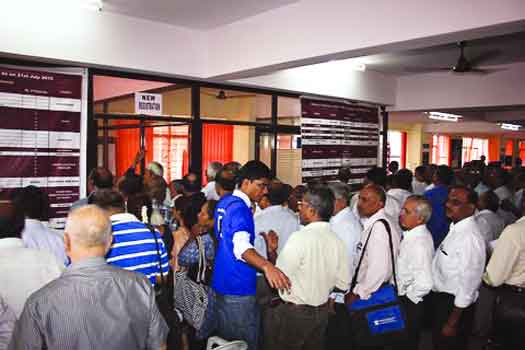Unexpected announcement of a 10 per cent reservation for economically weaker sections is not a political masterstroke
The aftermath of the Mandal Commission report recommendations being implemented in India was to transform society in this country, and while it could never reverse the millennia of caste discrimination, it was believed at that time that the correct thing to do is to make India’s growth more inclusive. And while that has, to an extent worked, it has like many other solutions to long-festering problems, turned into a case of opening a Pandora’s Box of new problems. There is nowadays, for example, a perverse demand by caste leaders, once considered on the upper-end of the spectrum, to be declared backward so as to take advantage of reservations. Other castes that have benefited from reservations have zealously tried to protect their ‘turf’ and have actively prevented other castes from getting a piece of the action, whether it is in Government jobs or educational institutions. Also, as evidenced by the demand for quotas by land-owning upper castes such as Jats and Gujjars in a belt near the capital to the Marathas in Maharashtra, upper castes are finding it increasingly difficult to compete in this environment and are being left behind. And this is a delicate balancing act for Governments both at the State and Central level because in large swathes of India, castes still tend to vote en masse.
So on the face of it, a reservation for economically weaker sections of society should be a political masterstroke. However, coming so late in the day, the cynic will obviously view it through politically-tinted glasses and believe that this is a way of keeping upper-caste votes within the Bharatiya Janata Party for Narendra Modi, who appears increasingly fretful of the general election coming up in three months. But there are a few issues here, the first is the need to pass a Constitutional amendment. While some caste-based parties might oppose it, smarter members of the Opposition could ensure it gets stalled in Parliament. And then there is the Supreme Court, which has previously ruled that breaching the 50 per cent reservation mark is unconstitutional, save in Tamil Nadu where prior reservations of 69 per cent were grandfathered in. Will the Supreme Court allow this amendment to pass? That is something for the justices to consider, which they almost certainly will have to. And if previous attempts at reservations for upper castes by State Governments is any indication, the shaky foundations of the Bills will be demolished by the highest court of the land.
But then comes the biggest problem of all: Where are the jobs? The Government of India and its public sector units still remain India’s largest employer but over the years it is hiring fewer and fewer people and one could rightly think that this move is a cop out for Modi as his Government has failed to create enough jobs over the past few years, in no small part thanks to his own policies such as demonetisation. So all said and done, this is not a done deal as yet and Modi, faced with his facade crumbling, is trying to go all out to ensure a second term despite squandering the immense political capital he had back in 2014. But this could be a case of ‘too little, too late.’


























